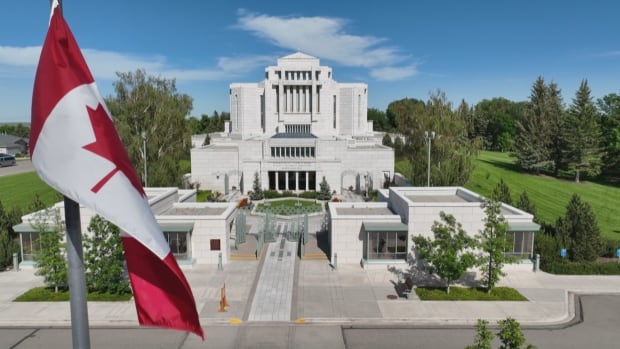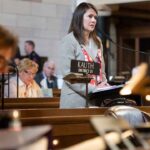Global Courant 2023-05-31 17:45:31
A century after the end of Prohibition, a dry town in southern Alberta is one step closer to allowing liquor in certain establishments.
The city of Cardston, located about 140 miles south of Calgary, held a plebiscite Monday in line with the county election on possibly amending a bylaw to allow restaurants and large venues to serve liquor.
The city results, where many non-drinking Mormons live, or members of the Church of Jesus Christ of Latter-day Saints, were close — 491 residents (or 53 percent) voted yes, 441 voted no.
CBC News reached out to Mayor Maggie Kronen for comment on the results, but did not hear back in time for publication.
Tanner Leavitt, owner of Guero Taco along the city’s main street, is one of several people in the city’s business community who have pushed for the bylaws to be changed. He said he was surprised by Monday’s results.
“I’m hopeful for what this could bring,” he said. “The councilors I have approached seem willing to proceed on this basis.”
The result of Monday’s plebiscite was not binding. However, they will be used to inform the council of public opinion on the issue as the city moves forward with potentially amending the bylaws. The next step is a public hearing.
In particular, Cardston is considering changes to a land use ordinance that would allow Class A and B permits, which are intended for food-first restaurants and large facilities, where alcohol can be consumed on-site. Covered under the major facilities license would be the community golf course and Agridome.
What the bylaw amendment wouldn’t do is allow liquor stores to open.
According to Leavitt, the last time Cardston’s council considered allowing liquor licenses in the city, opinion among the council was divided: four against the change versus three in favor. This division was part of what led to the recent vote.
“I reached out to the councilors who were against it, and they wanted to hold a plebiscite to see how they could better represent the city, because they were going by the results of the last plebiscite,” Leavitt said.
The last plebiscite took place in 2014, when nearly 70 percent of voters chose not to change Cardston’s dry status, which has been in effect since 1923.
Cardston, which has a population of 3,724 according to the 2021 census, remains one of a handful of dry towns in southern Alberta. Others include Raymond and Magrath, both of which also have large Mormon populations.
A matter of choice
Marsha Negrych, the owner of the century-old bed-and-breakfast Cobblestone Manor, has argued with her husband, Ivan, for certain liquor licenses to be allowed in Cardston.
In a phone call Tuesday, she said allowing venues like the golf course or the Agridome to serve alcohol offers growth opportunities for the small town. Often, she said, event organizers are turned off by the dry rules and choose to host their tournaments or rodeos elsewhere. In addition, visitors bring all their own alcohol from outside.
“We can’t book tournaments because you can’t buy a drink,” she said. “And yet when (visitors) return their golf carts, after people rent them, they’re full of empties. So people are drinking. I mean, it’s ridiculous.”
The owners of The Cobblestone Manor in Cardston, Alta, say they can’t sell the bed and breakfast because potential buyers want to operate it with a liquor license. (cobbled country house)
Negrych and her husband are Mormon. So is Levitt. They refrain from drinking alcohol. However, they say visitors to their city should be able to drink if they want to.
“It’s 2023 and we’re the only place around where you can’t buy a booze of your choice,” Negrych said. “It’s not right. It’s not right to deny people their freedom of choice.”
Changing the bylaws would help Negrych, who is 75 and looking to retire, sell the bed-and-breakfast and associated restaurant. When potential buyers learn they can’t currently get a liquor license for the historic property, they run away.
For Leavitt, if the bylaws changed, he would open a patio in the back of his restaurant. He said the option to sell alcohol would keep more tourist dollars in the city.
“Often, when we tell them it’s a dry city, they ask where else to go, so they move on or go eat somewhere else,” he said. “So from a business standpoint, I think we can keep a lot more business here in the city and attract more people who don’t have the same beliefs as the residents.”
No comment from the church
CBC News reached out to the local Church of Jesus Christ of Latter-day Saints for comment on the results of the plebiscite.
In a statement, a spokesman said the church has not taken a position on the issue prior to the plebiscite and will not take a position afterwards.
“The Church does not endorse any political party or candidate. Members of the Church are encouraged to be good citizens, consider the issues and vote conscientiously,” the statement said.








